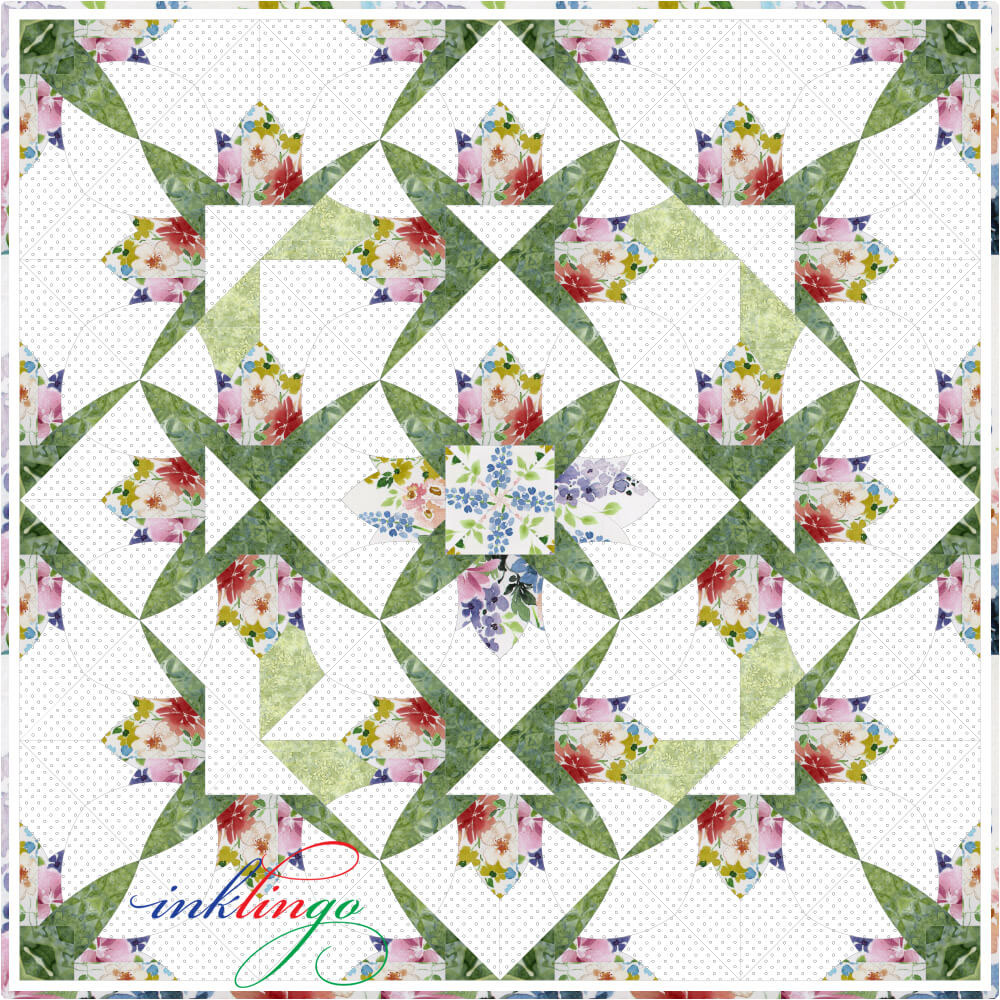 I designed this quilt with the new Inklingo Tulip Patch shape collection.
I designed this quilt with the new Inklingo Tulip Patch shape collection.
I like this design (above) and I wonder if I have enough fabric to make it.

The Tulip Patch quilt design was first published in 1935 (Beyer 363-10) but tulips have a long history. Tulips were first cultivated in the Byzantine Empire (i.e. The Eastern Roman Empire) in 1000 AD—when they spoke Latin, although we associate tulips with the Dutch today.
(I.e. is id est in Latin and means “that is.” It is used to restate something.)
The good news is that it only took 89 years for this design to be available from Inklingo in a beautiful, visual language that quilters understand.
Show Me the Fabric Requirements
When it comes to fabric requirements, some quilters might say, “It’s all Greek to me.” (Shakespeare coined the phrase in Julius Caesar. Romans spoke Latin, not Greek.)
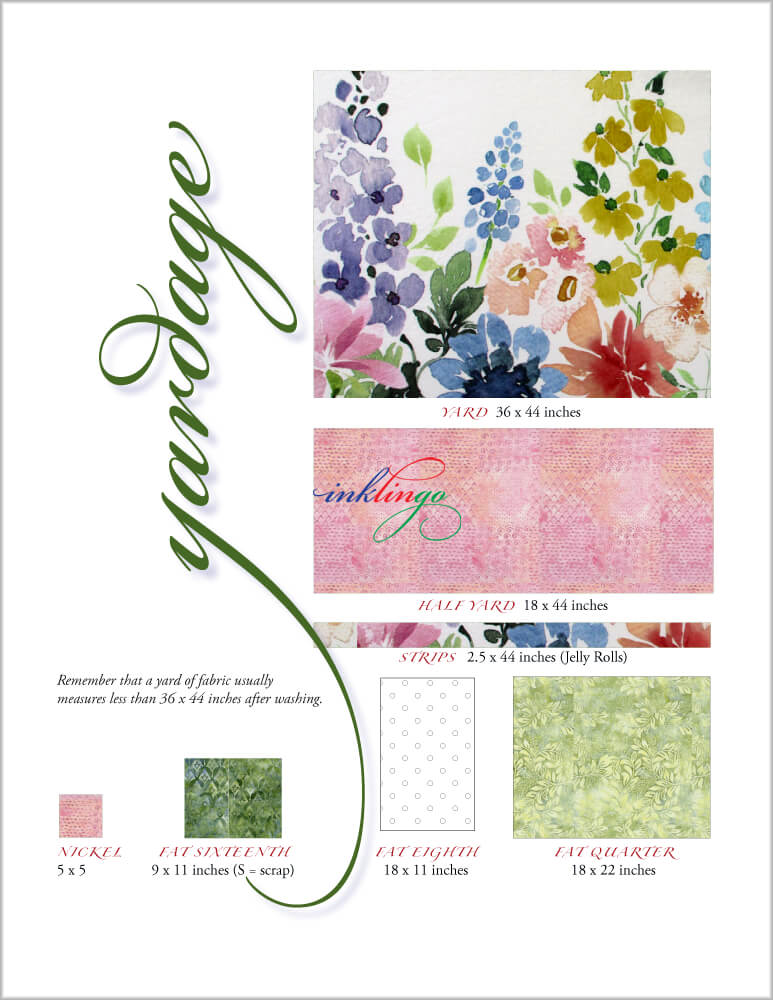
The Inklingo Language of Fabric Requirements—Visual!
I cut up a copy of the design to see the individual blocks but now I need fabric requirements, stat!
(Statim means “immediately” in Latin. In TV medical dramas, it takes too much time to say Statim, so they shorten it to Stat. Oh, well. It sounds better than ASAP, eh? Shout out to Miss Quinlan, my Latin teacher in high school. )
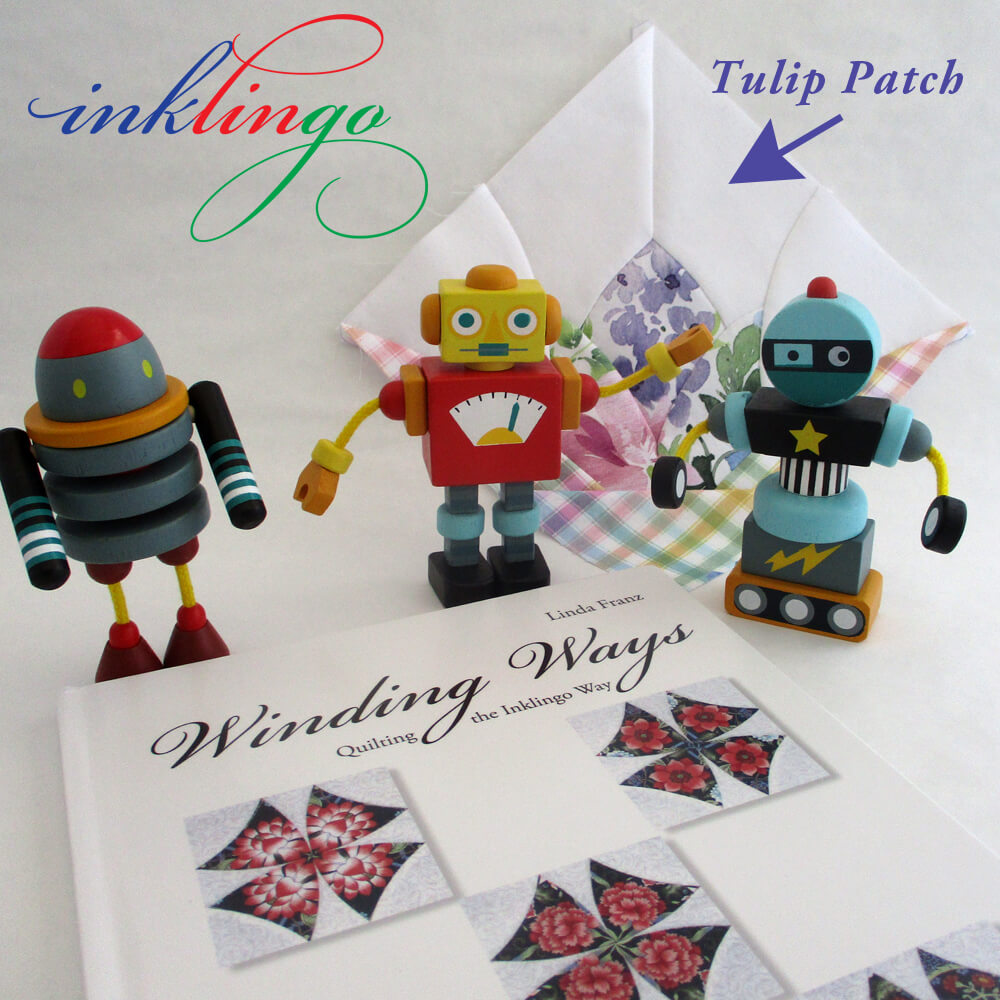
How Much Fabric?
Do you wish you had a robot programmed to determine fabric requirements for any quilt you design?
Maybe you see a design on Pinterest that isn’t Tulip Patch or Winding Ways or just want to make a design bigger or smaller.
“How much fabric?” is one of the first questions.
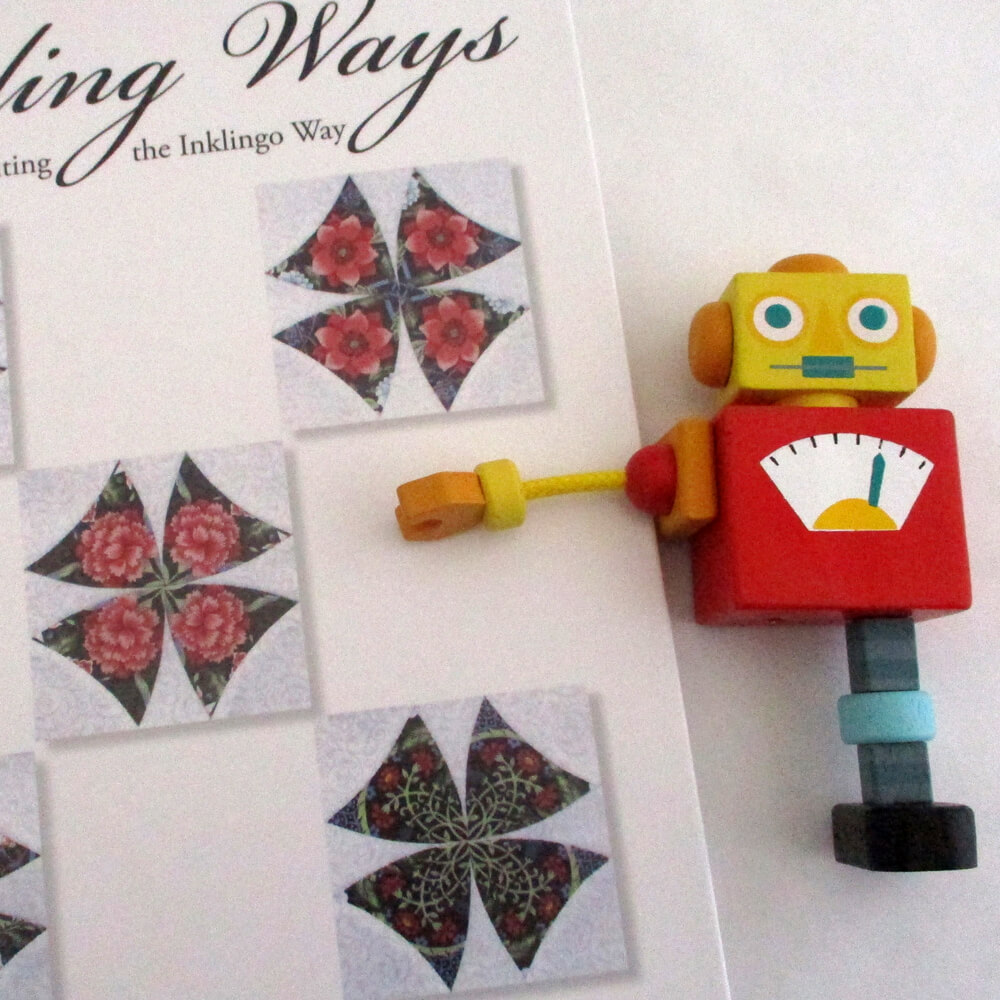
A Quilter’s Reference Book, not a Robot
You don’t need to give an arm and a leg (above) to know how much fabric you need. All you need is the Winding Ways book.
Let me explain why this book is the best resource for the new Tulip Patch shape collection—at least until we each have a robot that does more than vacuum and scare the cat.
Instead of listing the fabric requirements for one design, this book teaches how to determine the amount of fabric you need for any design—or to adapt a design to use what you have in your stash.
The Inklingo visual language works beautifully but the method is good even without Inklingo!
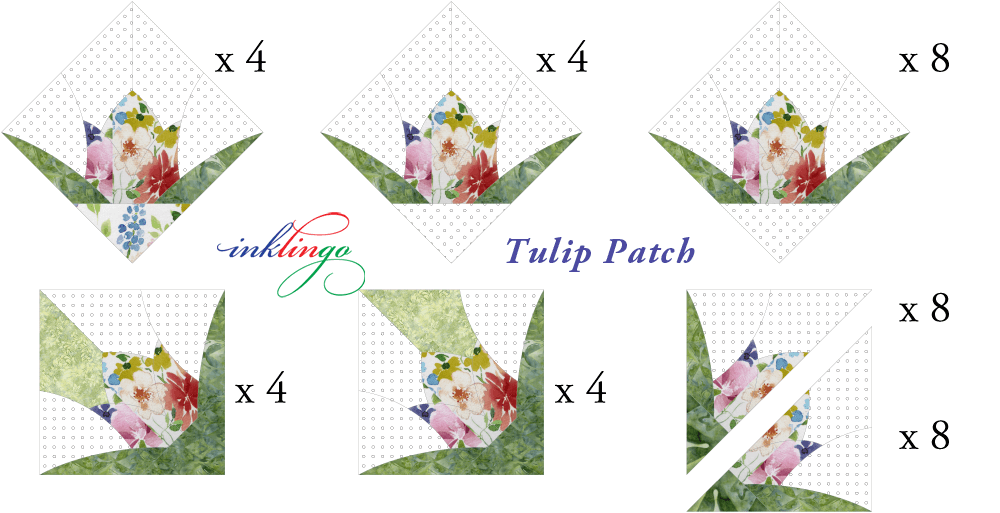
Counting the Shapes
Sometimes, counting what you need from each fabric can be confusing even when there are only 3 or 4 fabrics—but not if you follow the strategy in Winding Ways. (E.g. page 47).
(E.g. is exempli gratia in Latin and means “for example.”)
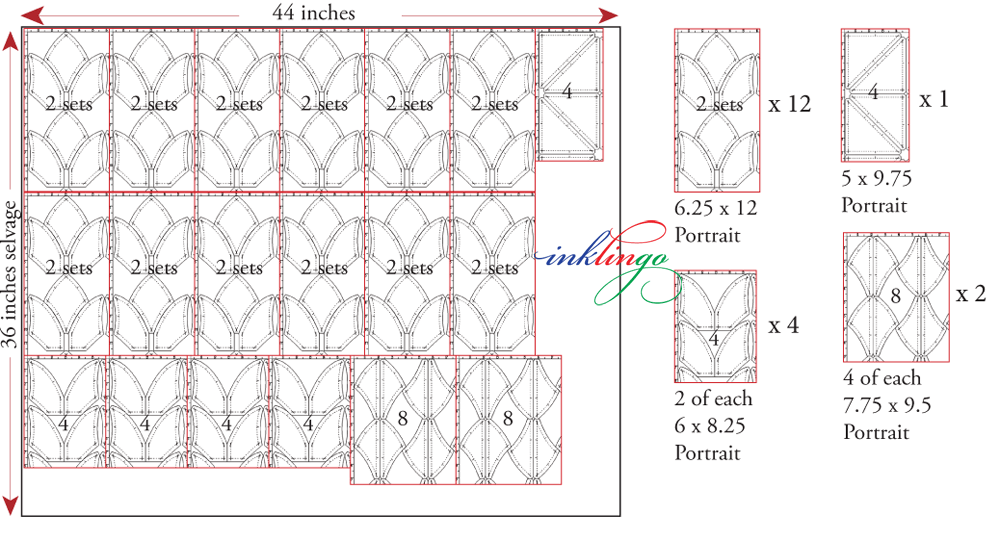
This is such an easy, cool way to see how much you need to buy or—even better—whether you already have what you need in your stash.
You don’t need a pattern!
The Winding Ways book also includes instructions for determining fabric requirements if you are using templates instead of Inklingo. Wow. (I don’t think wow is Latin.)
The language of fabric requirements is not just for professional designers anymore. It’s a visual language, not Latin or Greek.
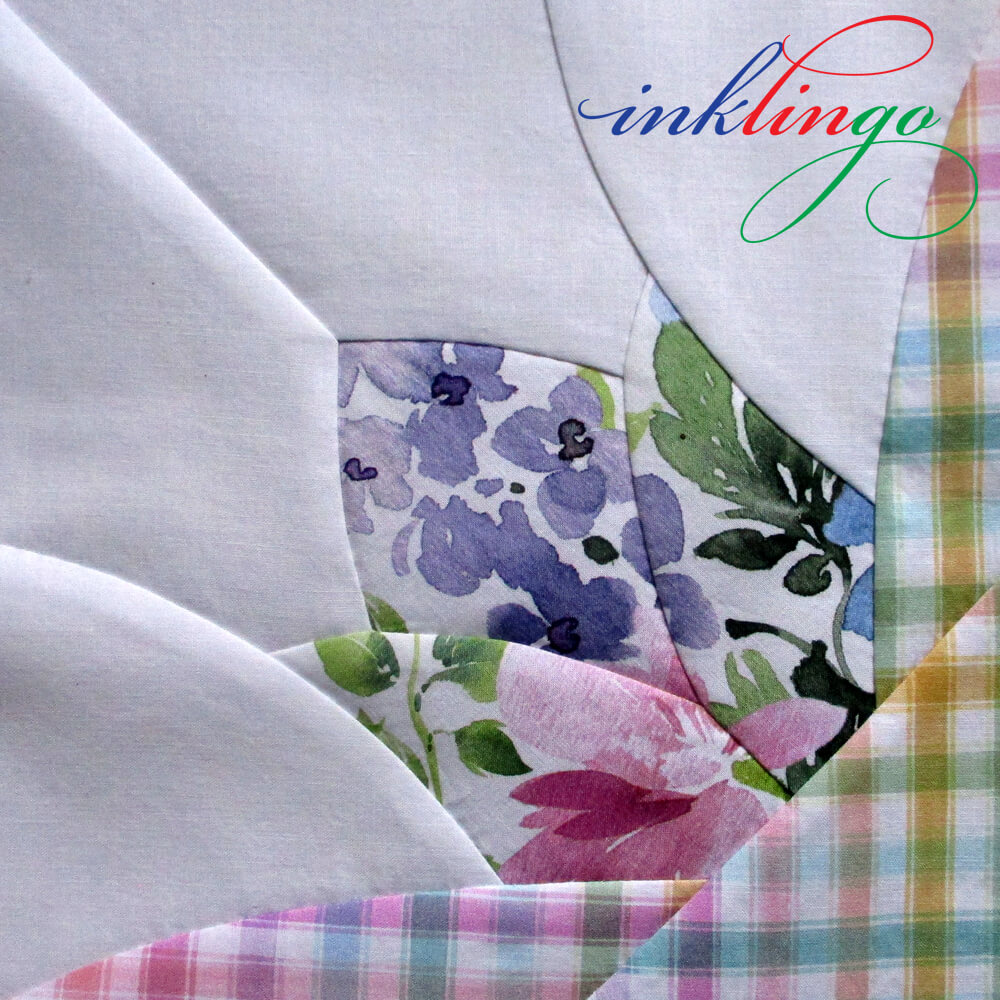
Winding Ways for Tulip Patch
Both Winding Ways and Tulip Patch have impressive, gentle curves, so the sewing instructions are similar too. It’s all in the book.
The Winding Ways book also includes all of my best tips for rotary cutting straight lines and curves, safely and accurately. (N.B. Acrylic templates are not an advantage! See Why I don’t sell acrylic templates.)
(N.B. is short for nota bene and means “note well.” It is used to indicate something is important and you should take notice of it.)
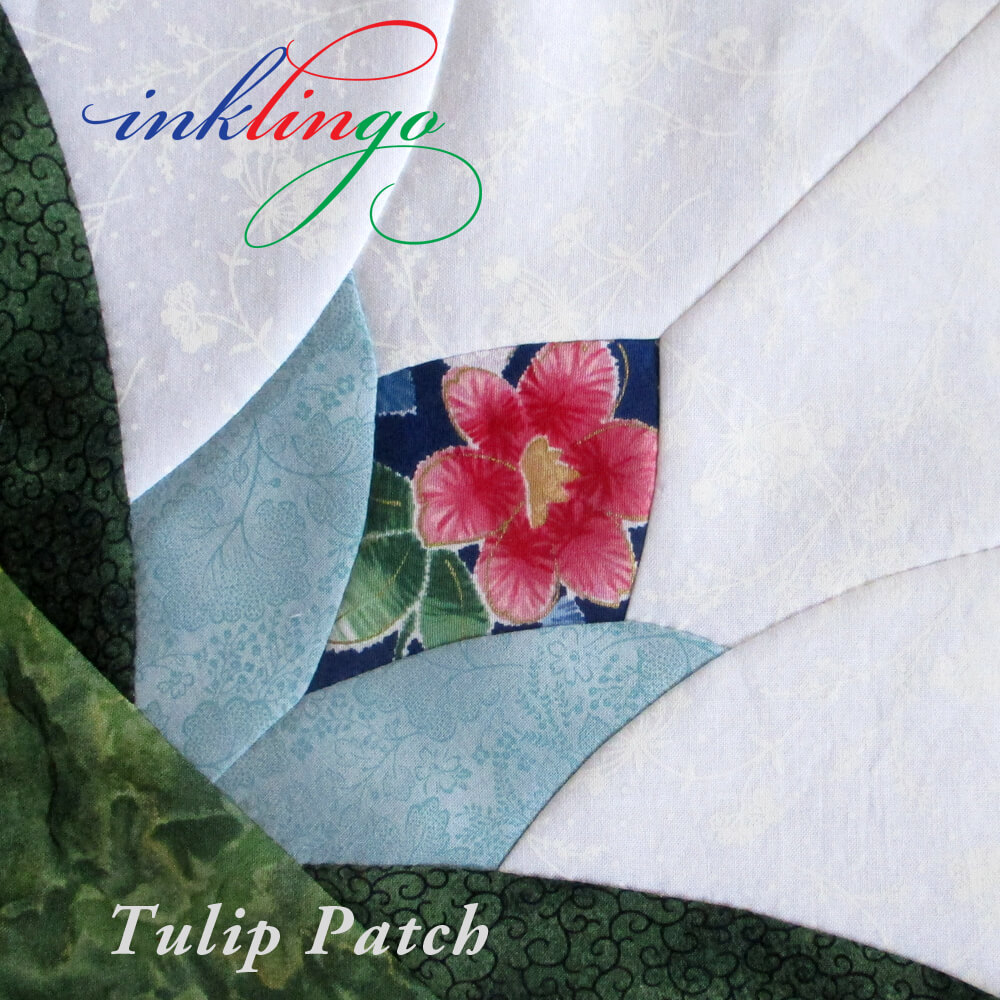
Fussy Cutting Opportunities
Both Winding Ways and Tulip Patch have exciting fussy cutting opportunities, and the Winding Ways book teaches two methods of fussy cutting with Inklingo. (Wow. This book has everything!)
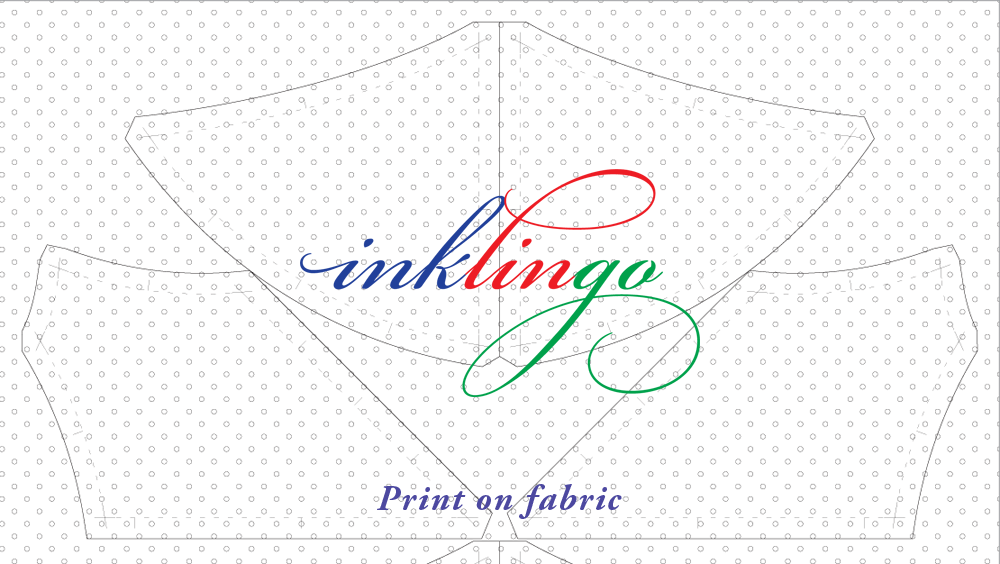
Carpe Diem!
As if that were not enough, the book is at a LOW price (hardcover or PDF download) for a few days. So is the new Tulip Patch shape collection.
N.B. Monkey says you should order now—Stat!
Carpe Diem = Seize the day! These sale prices won’t last forever.
Thank you for visiting and for sharing your reviews. There is more to come.
Linda & Monkey



My 2 cents,
I think your quilt would benefit from a third value of green (dark) so that things don’t run together (unless that is your intention). This is a lovely block and reminds me of Cleopatra’s Fan. No doubt that the lady that loves curve piecing is in heaven.
Claudia
Hi Claudia, I like your suggestion. I am still playing with this design. (It is hard to stop!) I think we might need an EQ project file for this one. I want to see what everyone does with Tulip Patch.
The book is worth its weight in gold – no surprise as your books are always full of valuable lessons!
Thank you, Cathi. I loved every moment working on this book.